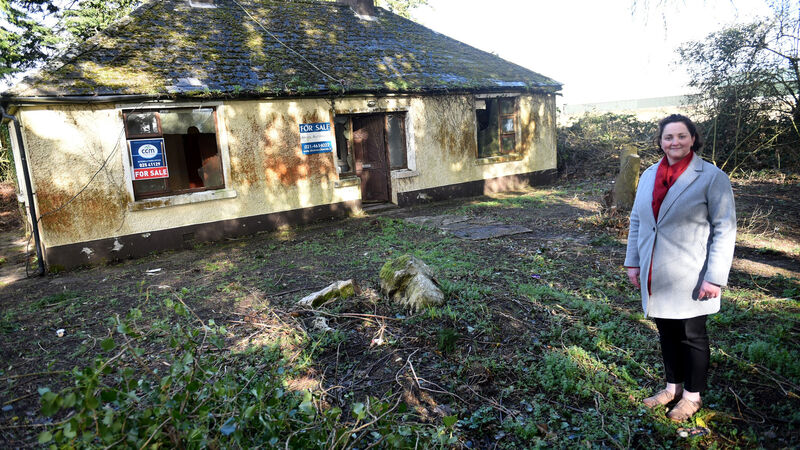Town or country? Covid-19 has changed how and where people want to buy

Auctioneer Ann-Marie Ahern outside a derelict bungalow on 0.8 acre for sale in Rostellan, East Cork. Ann-Marie says those searching for a rural bolthole during the pandemic have become more interested in the potential of previously used sites or derelict properties that can be developed to their specific needs. Picture: Larry Cummins
More people are looking to move out of urban areas and are even bidding on derelict rural properties, estate agents say, as the pandemic completely transforms the property market, writes .
The Covid-19 pandemic has utterly transformed the property market, with people now looking at rural areas over urban centres, and a good broadband connection tops the list of must-haves.











